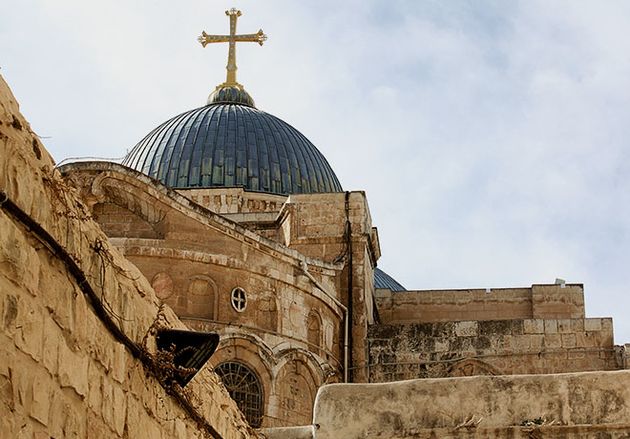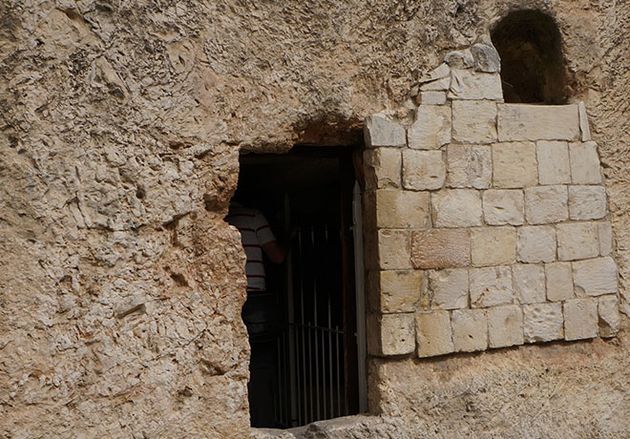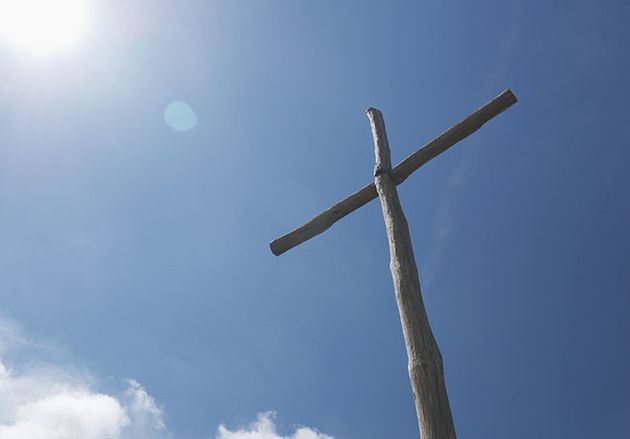Reflections on the problem of evil and the might of God.
![Image via [link]Lausanne Movement[/link].](https://cms.evangelicalfocus.com/upload/imagenes/5f68edd60591c_calendar.jpg) Image via [link]Lausanne Movement[/link].
Image via [link]Lausanne Movement[/link].
The COVID-19 pandemic has forced the world to face one of the most enigmatic phenomena in human life—the reality of evil and suffering.
There are many sources of evil in the world. From a biblical viewpoint, evil comes ultimately from Satan, who ‘prowls around like a roaring lion looking for someone to devour’ (I Pet 5:8).
Evil could also come from natural causes in the form of disasters and epidemics. Certainly, the Bible provides examples in which plagues and pestilences are sent by God as punishment for human sin.
One of the classic examples of this is the plagues that Egypt had to endure when Pharaoh refused to release Israel from bondage. In the case of Job, it came as a test of faith in the sovereignty of God. There is also moral evil, which emanates from our sinful choices as in the case of Adam and Eve in Genesis 3.
The Bible accounts for all these sources of evil and presents evil as that which opposes the good and ultimately inflicts suffering. Christopher Wright correctly notes that ‘all of us struggle to make sense of the presence of evil in the midst of God’s good creation.’1
The coronavirus crisis has disrupted church life and become for many Christians a classic example of the conundrum of evil against the reality of a compassionate God.
It was at the height of the COVID-19 pandemic that the church had to celebrate some of its most important events: the Crucifixion, Resurrection, Ascension, and Pentecost. In non-Western contexts, normally these are events that attract many to church.
We celebrate with public processions, reenacting in joyful tones the march to Golgotha, the tomb, and the mount of ascension, and crown it with the celebration of the coming of the Spirit at Pentecost.
But these were celebrated in a somber mood in 2020. This looked strange, but that was the same context within which our faith was birthed. The Christian faith itself emerged out of groans for release from evil.
Lockdowns offer opportunities to reflect on the painful origins of our faith as the powers of evil resisted the might of the sovereign Lord.
In the light of the biblical meanings of these celebrations, what are the theological lessons on evil and suffering that we can learn from this COVID-19 pandemic? In the words of Wright, we who believe in God and know and trust him ‘find ourselves torn apart by the emotional and spiritual assault’ of evil in the world. 2

[photo_footer] Holy sepulchre basilica. Image via Lausanne Movement. [/photo_footer]
During the 2020 Passion Week, CNN showed the geographical location of the original Passover in lockdown mode. The streets of Jerusalem were empty, shops were closed, and people stayed home.
For the first time in living memory, Passover was celebrated behind closed doors. In the midst of the COVID-19 pandemic that has kept most people locked down and confined, God’s word to Israel in bondage, ‘when I see the blood, I will pass over you’ came in handy in the 2020 Passion Week.
The original episode occurred in terrifying times as Yahweh inflicted plagues to soften Pharaoh’s heart. That it took the death of firstborns, including those of animals, for Pharaoh to release Israel from bondage tells much about the terrorizing effects of the drama around the first Passover that we now celebrate in the Crucifixion.
The Passover Lamb is now the Lamb of God who takes away the sin of the world (John 1:36; Heb 9:11-14).
People often wonder why Pharaoh is blamed for his intransigence if indeed it was the Lord who hardened his heart as the writer of Exodus indicates. Reading the text, it would seem unthinkable that the resolve of a human being could be so strong, that in the face of such suffering he would still persist.
But that is what happens when human beings insist on going against God’s will. We create the atmosphere for evil to thrive and the resultant pain and suffering affect everyone, as in Pharaoh’s day.
Evil can be persistent and inexplicable. The adjective ‘good’ was added to that Friday years later. The Passion of the Christ was such an agonizing experience that at some point the sweat of Jesus took the form of blood.
The original day of Passion was one of pain and sorrow. The followers of Jesus had to run for their lives and take cover. When on the cross, Jesus cried, ‘My God, my God, why have you forsaken me?’, he was quoting words from Psalm 22 and this was indicative of the fulfilment of Scripture as far as the crucifixion was concerned.

[photo_footer] Jerusalem garden tomb. Image via Lausanne Movement. [/photo_footer]
The onslaught of evil continued through the morning of the resurrection. When Jesus himself appeared to the disciples and breathed on them the Holy Spirit, they were still in lockdown mode.
They were together, ‘with the doors locked for fear of the Jews’ when Jesus came and stood among them and said, ‘Peace be with you’ (John 20:19). Thus, the first Easter was celebrated with the disciples locked down.
When the two disciples on the road to Emmaus returned to deliver the good news of their encounter with Christ, the others were still in lockdown mode. Things changed when they testified that Jesus had not only revealed himself to Simon, but also to several others (Luke 24).
The resurrection broke the back of evil by turning the cross, originally a symbol of curse or shame, into a symbol of glory. The truth of the resurrection is that God cannot be locked down.
Peter testified to this on the day of Pentecost when he testified of Jesus: ‘But God raised him up, having freed him from death, because it was impossible for him to be held in its power’ (Acts 2:24).
The resurrection was not simply a triumph over the enemies of the gospel; it was also a total destruction of their evil plans against the Son of God and the salvific destinies of humanity. In the resurrection, God moved out of lockdown mode in that cemetery and hence the question to the women at the tomb, ‘Why do you search for the living among the dead?’ (Luke 24:5-7).
From that point it was clear that our evidence of the power of the resurrected Christ ought to consist in people witnessing in our lives and in the church the active power of the Spirit.
John Piper puts it succinctly within the context of the coronavirus pandemic when he writes that ‘the ultimate aim of God for his people is that we glorify his greatness and magnify the worth of his Son, Jesus Christ.’[3] That is the work of the Spirit in human life.

[photo_footer] Image via Lausanne Movement. [/photo_footer]
At Jesus’ ascension, the disciples were so confused that they needed an angelic assurance: ‘This Jesus, who has been taken up from you into heaven, will come in the same way as you saw him go into heaven’ (Acts 1:11).
The mood is made clear by the fact that immediately after the ascension, the disciples placed themselves in lockdown mode as they waited for the empowering presence of the Holy Spirit (Acts 1:13).
For as Peter told the crowd on the day of Pentecost, the Jesus that was crucified was the same one that ‘God raised up’ (Acts 2:32) and, ‘being therefore exalted at the right hand of God and having received from the Father the promise of the Holy Spirit, he has poured out this that you both see and hear’ (Acts 2:33).
On the day of Pentecost the disciples were locked down in anticipation of being ‘clothed with power’ and God did not disappoint as we read in Acts 2. The two celebrations—Ascension and Pentecost—are therefore related, for as Paul notes, it is following the ascension that Christ poured out gifts on his church (Eph 4:8b).
That is to say, when the church breaks out of its lockdown mode in the power of the Spirit, it overcomes and emerges as an instrument of God in a world caught up in the clutches of evil. For, ‘when he ascended’ Jesus ‘made captivity itself captive’ (Eph 4:8a).
In this journey from the Crucifixion to Pentecost, we learn that ultimately the resolve of evil could not withstand the might of the Almighty God. Evil would seem to thrive in some circumstances, but it never has the last word, as far as God is concerned.
‘An empty grave is there to prove that my Savior lives’, as one popular gospel song says, but our greatest testimony lies in the living power of the risen Christ. That is what we learn from biblical salvation history.
Evil can have a terrifying effect as we see how the disciples were kept locked down right through the day of the resurrection. It is striking that the same qualities that the Passover Lamb was supposed to possess in Exodus were also ascribed to Jesus Christ.
Christ is our Passover Lamb. He is described in words chosen from Exodus, as one whose blood is precious, ‘a lamb without blemish or defect’ and who was ‘chosen before the creation of the world but was revealed in these times for your sake’ (I Pet 1:19-20).
We may have different views on why the world was afflicted with COVID-19. Many theories abound ranging from conspiracy theories to the pandemic being a punishment from God against human sin and rebellion.
Whatever the reason, God has lessons to teach his church in this time of evil, suffering, and pain. Through it, we are called to ponder our relationship with him, and as Joel invites us to do, rend our hearts and not our garments in repentance and trust God to forgive our sin and heal his world (Joel 2:13; 2 Chron 7:14).
This crisis, Piper notes, invites us ‘to make God the all-important pervasive reality in our lives. 4 In God’s salvation history, lockdown mode is never a permanent condition because evil never has the last word as long as he reigns!
J. Kwabena Asamoah-Gyadu, PhD, is Baëta-Grau Professor of African Christianity and Pentecostal/charismatic theology at the Trinity Theological Seminary, Legon, Ghana. He is also the President of the Seminary.
This article originally appeared in the September 2020 issue of the Lausanne Global Analysis and is published here with permission. To receive this free bimonthly publication from the Lausanne Movement, subscribe online at www.lausanne.org/analysis.
1. Christopher J.H. Wright, The God I Don’t Understand: Reflections on Tough Questions of Faith (Grand Rapids: Zondervan, 2008), 17, 27.
2. Wright, Tough Questions of Faith, 31.
3. John Piper, Coronavirus and Christ (Wheaton: Crossway, 2020), 90.
4. Piper, Coronavirus and Christ, 83.

Las opiniones vertidas por nuestros colaboradores se realizan a nivel personal, pudiendo coincidir o no con la postura de la dirección de Protestante Digital.
Si quieres comentar o